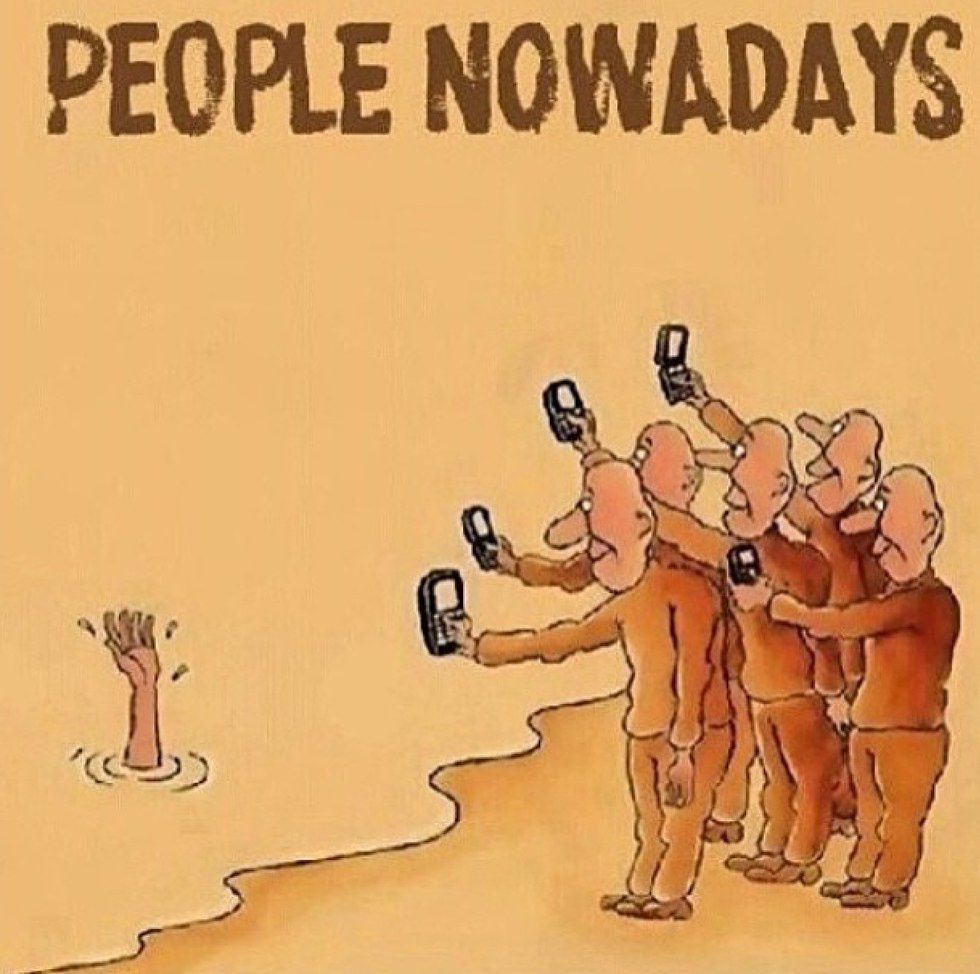Several months ago, as I was scrolling down my Facebook newsfeed, I saw this picture:
I thought, wow, there goes my faith in humanity. To me, it was a reflection of society's lack of compassion. It was horrifying to think that out of a group of people, no one is willing to help. I thought, is this the era that we become heartless? Is this the generation with which compassion becomes extinct? Possibly, but I think people's lack of compassion has always existed. I could remind people of the slaves who died building the pyramids, or battles in Roman colosseum, or the live beheadings during the French revolution, or the celebration of the atomic bombs during World War II. So what is it about this picture that is so shocking? It could be that everyone hesitates to help, but I think it's instead that they choose to record.
A few weeks ago, I learned about this socio-psychological phenomenon in Social Psychology called diffusion of responsibility that explains the bystander effect. The bystander effect is basically our hesitation to help someone in need when we are in a group. It is more likely that an individual will help a person in need if they are alone than if they are with a group. In the picture above, for example, if there had just been one individual on the shore side compared to the group there would more of a chance the individual might have been rescued. One explanation behind this effect is diffusion of responsibility, which means that our sense of responsibility decreases within a large group of people. We tend to think: someone probably called the ambulance already, or someone else will help them. Or it sometimes goes so far as to convince ourselves that since no one is helping, maybe that person does not need help. It's like we are afraid of having that responsibility, and we want someone else to rescue us from that situation. The bystander effect can be as harmless as not telling someone they dropped their dollar when we are walking with your friends, or as harmful as the Kitty Genovese case of 1964, where a women was murdered and raped near her apartment building in New York, and out of 38 witnesses, no one did anything to help her.
It is our sense of "not wanting to get involved" that allows preventable tragedies to happen before our eyes, or worse, before our phones. People today do not only hesitate to help, but instead prefer to adjust the camera on their phones to get a clearer image. It seems like we would rather be the witnesses than helpers, the observers rather than the doers, the accomplices rather than the heroes. What if the person being murdered was a loved one, and you found out that there were 38 witnesses that could have helped, but didn't? What if you were the one begging for help, only to find out that instead of being rescued, you where being recorded? Sometimes someone else will help, sometimes they won't; but if we can, why not?




















